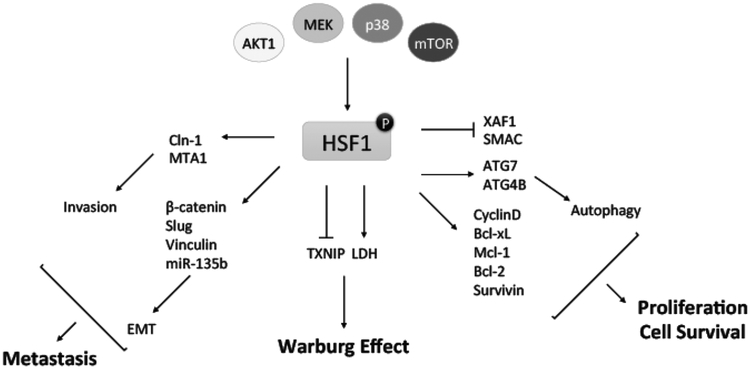Fig. (2).
HSF1 Function in Tumorigenesis and Tumor Progression. HSF1 has been shown to be phosphorylated and activated at Ser326 by AKT1 [61], MEK [69], p38 [123], and mTOR [124]. HSF1 directly regulates multiple genes to promote migration, invasion, and EMT that ultimately translates to tumor progression and metastasis. HSF1 also appears to directly upregulate and downregulate several genes that lead to enhanced cell proliferation and survival. In addition, HSF1 has direct effects on genes that promote the Warburg effect of increasing glycolysis in cancer cells. Together these functions, and others, suggest HSF1 has multiple effects that lead to tumorigenesis and tumor progression.

